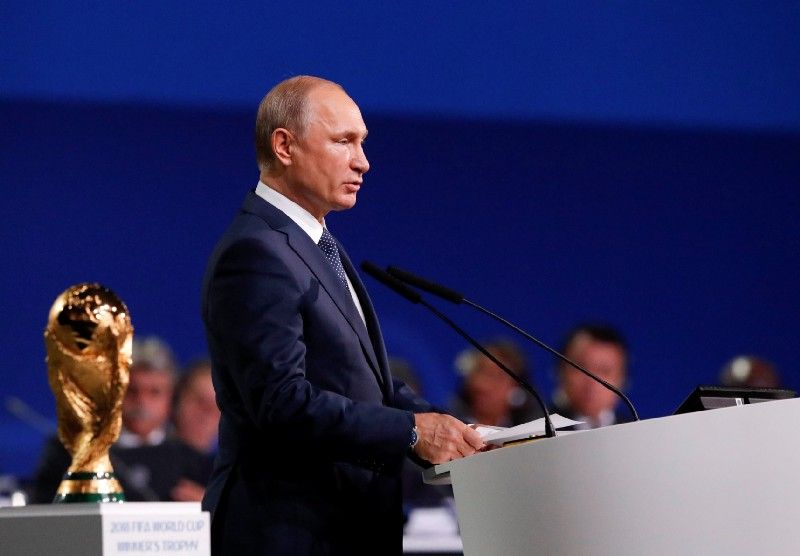July 03, 2018
Since the World Cup began, the Russian team’s goal differential has been +4 points. Over the same period, Russian President Vladimir Putin’s approval rating has rung up a differential of… negative 14 points, according to Kremlin-connected pollster VTsIOM. His current rating of 63 percent nears his historic lows, sitting roughly where he was back in 2014, when Putin-fatigue and economic malaise had taken their toll until the invasion of Crimea sent his numbers soaring.
What’s going on? Two weeks ago, the Russian government announced it would increase the pension age from 60 to 65 for men and 55 to 63 for women. The change was long overdue for an inefficient and underfunded system, but it sure wasn’t popular. For one thing, life expectancy for Russian men born in the 1960s is 62 years — “we’ll see our pensions — in the grave” read one choice poster at scattered anti-reform protests this weekend.
The pensions fiasco has hurt Putin’s numbers badly for two reasons. The first is simple math: there are currently about 43 million pensioners in Russia — that’s almost a third of the population. They have long been among the most stalwart Putin supporters, and he’s just angered all of them in one go.
Second, a large part of Putin’s appeal has always been the sense that he moved Russia beyond the troubles of the 1990s, when post-Soviet economic chaos reduced much of Russia — in particular elderly pensioners — to penury and humiliation. After a botched experiment with pension reforms in 2005 provoked huge mid-winter protests by old folks, the government swore off any further changes and plowed more and more money, unsustainably, into pensions. It took 13 more years for Putin to approve a bigger reform — and he only did it after his (third) re-election back in March was comfortably in the bag.
So what happens next? Putin has kept a low profile in recent days, opting not to turn up for the Russian teams stunning defeat of former world champs Spain on Sunday. Protests have so far been small, owing to some unusually thrilling World Cup soccer. But when the tournament euphoria wears off, Putin will have to confront the first serious challenge to his popularity in more than a decade. Who’ll take the fall?
More For You
- YouTube
GZERO World heads to the World Economic Forum in Davos, where Ian Bremmer lookst at how President Trump’s second term is rattling Europe, reshaping both transatlantic relations and the global economy, with Finland’s President Alexander Stubb and the IMF’s Kristalina Georgieva.
Most Popular
Think you know what's going on around the world? Here's your chance to prove it.
- YouTube
How widely is AI actually being used, and where is adoption falling behind? Speaking at the 2026 World Economic Forum in Davos, Brad Smith, Vice Chair and President of Microsoft, outlined how AI adoption can be measured through what he calls a “diffusion index.”
U.S. President Donald Trump holds a bilateral meeting with NATO Secretary General Mark Rutte at the World Economic Forum (WEF) in Davos, Switzerland, January 21, 2026.
REUTERS/Jonathan Ernst
After saying numerous times that he would only accept a deal that puts Greenland under US control, President Donald Trump emerged from his meeting with NATO Secretary General Mark Rutte singing a different tune.
© 2025 GZERO Media. All Rights Reserved | A Eurasia Group media company.
